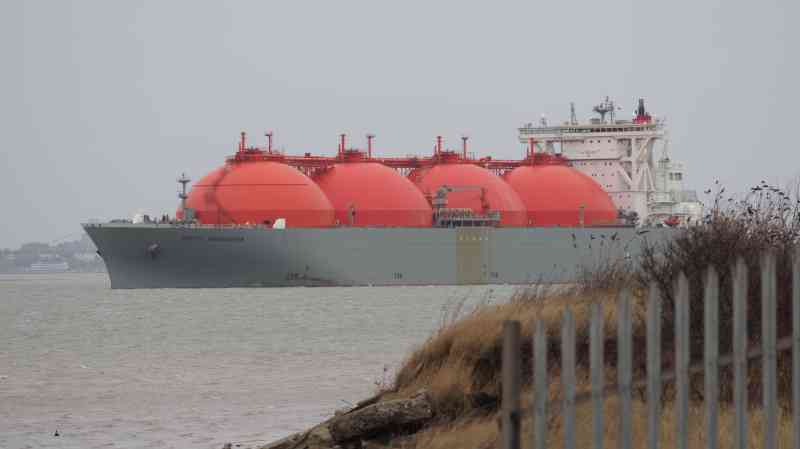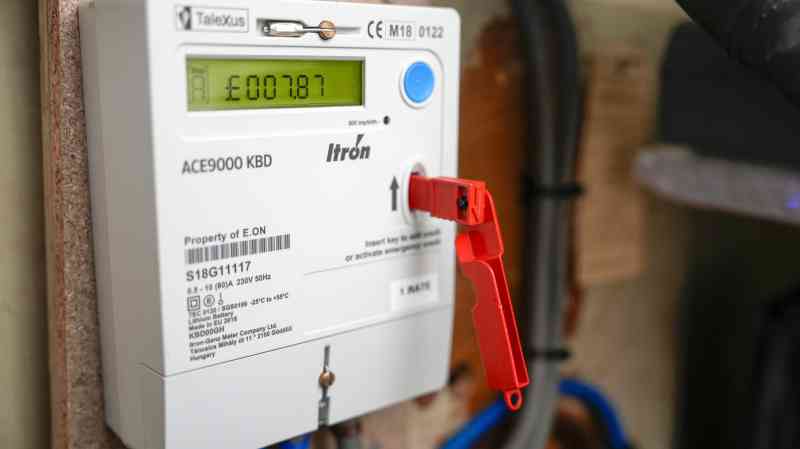Centrica agrees $8bn deal to buy gas from US
Centrica has finalised an $8 billion agreement to purchase liquefied natural gas (LNG) from a new floating production facility in the Gulf of Mexico.
The British Gas owner will buy about 14 LNG cargoes per year from Delfin Midstream’s new deepwater port, 40 nautical miles off the coast of Louisiana.
The million tonnes of LNG per year would be enough to heat 5 per cent of UK homes and Centrica said it intended to bring the gas to Britain, although it has the rights to sell it anywhere in the world.
The sale and purchase agreement with Delfin follows a heads of agreement signed in August 2022, at which stage the much-delayed project was expected to take a final investment decision later that year and to start exporting in 2026. Delfin is still working on a final investment decision and no gas is due to be exported until 2027.
Centrica said that as a foundation customer of the project, its agreement “underpins investment in the next wave of incremental LNG supply from the US”.
Chris O’Shea, the Centrica chief executive, said: “This agreement is good news for our customers and the country. The last year has demonstrated the critical importance of investing in the UK’s energy security. Natural gas is an essential transition fuel in the move to net zero and securing international agreements such as this are vital to the UK’s energy security.”
Dudley Poston, the chief executive of Delfin, said: “With the off-take capacity for Delfin’s first floating LNG vessel now sold, we continue to move towards final investment decision and bring this important project forward, becoming a partner to countries like the UK as it continues to make progress bolstering national energy security and driving down prices with clean, reliable LNG.”
Centrica is a FTSE 100 energy group, which posted record adjusted profits of £3.3 billion last year. It is best known for running Britain’s biggest household energy supplier, British Gas, which has about 7.5 million customers. However, it also has a North Sea gas business, operates the Rough gas storage site, has a 20 per cent stake in Britain’s nuclear plants and runs a significant energy marketing and trading business.
Supplies of LNG – gas super-chilled to liquid form for transport by tanker – have become increasingly important over the past year after Russia curtailed pipeline gas supplies to Europe in retaliation for Western sanctions imposed over its invasion of Ukraine. Gas prices surged to all-time highs of more than ten times usual levels last summer, although have now receded closer to pre-crisis levels.
Last year Britain’s LNG imports rose by 74 per cent to a record high, partly driven by cargoes being unloaded at UK LNG terminals and then transported by pipeline to Europe, which had insufficient LNG import terminals of its own to meet demand. America provided about half of Britain’s LNG, overtaking Qatar which had been Britain’s biggest LNG supplier for the previous 13 years.
Centrica said it was “investing heavily to future-proof the UK’s energy supply and address one of the underlying causes of the energy crisis”, highlighting its deal with Equinor last summer to increase the volumes of pipeline gas it imports from Norway. At the end of last month Centrica announced that it was almost doubling the capacity of the Rough gas storage facility, which it partially reopened last October.
Centrica is seeking to emphasise its role in delivering energy security for Britain as it braces for a political row when it is expected to report record half-year profits for its British Gas supply business later this month.




Post Comment